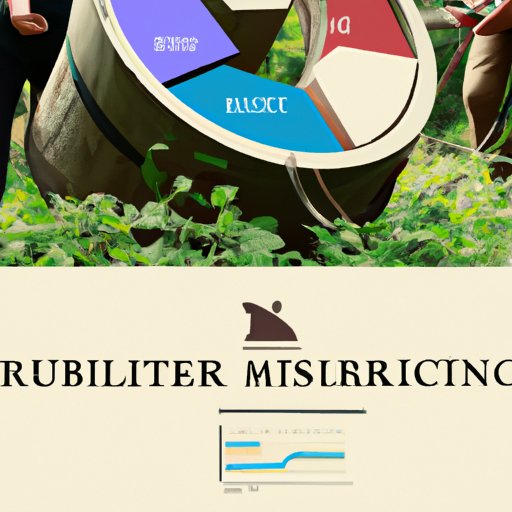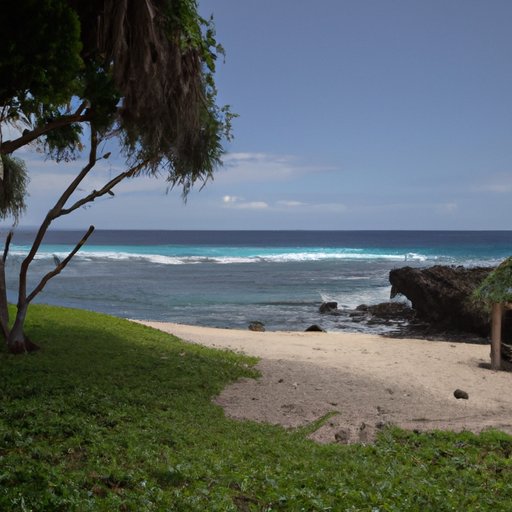Introduction
The Hawaiian Islands are a stunningly beautiful destination that attracts millions of visitors every year. But with the influx of tourists comes the potential for environmental and cultural damage. If you’re planning a trip to Hawaii, it’s important to think about how you can travel ethically. This means respecting the environment, wildlife, and cultural heritage, as well as supporting local businesses. Read on to learn how to travel to Hawaii ethically and sustainably.

Research Sustainable Accommodations and Activities
Before you start planning your trip to Hawaii, take some time to research eco-friendly accommodations and activities. There are plenty of options available that are designed to minimize their impact on the environment. Look for hotels, resorts, and other lodging options that prioritize sustainability. Many of these establishments have green initiatives in place, such as using renewable energy sources, recycling, and conserving water.
When it comes to activities, look for tour operators that offer eco-tours. These tours focus on educating visitors about the environment and wildlife, as well as helping to protect them. You can also look for activities that don’t involve motorized vehicles, such as kayaking, snorkeling, or hiking. These activities will help you explore the islands without polluting the air or disturbing the natural habitats of wildlife.
Respect Local Wildlife and Cultural Sites
As you travel around the Hawaiian Islands, be sure to show respect for the local wildlife and cultural sites. Hawaii is home to many native species of flora and fauna, including endangered species. Be mindful of your surroundings when exploring these areas, and do not disturb the wildlife. Do not try to touch or feed any animals, as this can harm them and put yourself at risk.
Hawaii is also home to many cultural sites, such as ancient temples and monuments. When visiting these sites, be respectful of the local culture and traditions. Avoid taking photos or videos unless explicitly allowed, and never take anything from the sites. Taking artifacts from these sites can damage the cultural heritage and put future visitors at risk.
Support Local Businesses
One of the best ways to make your trip to Hawaii more ethical is to support local businesses. Shop at local stores, restaurants, and markets to help boost the local economy. Many of these businesses are owned by families who rely on tourism to survive. Buying locally also reduces your carbon footprint, as goods and services don’t have to be transported from far away.
Eating at local restaurants is another great way to support local businesses. Many of these establishments use fresh, local ingredients, and they often have menus that reflect the diversity of the islands. Eating at local restaurants also ensures you get an authentic taste of Hawaii.
Reduce Your Carbon Footprint
Traveling to Hawaii inevitably involves producing carbon emissions. To reduce your carbon footprint, consider planning a low-carbon trip. This means avoiding air travel, which is one of the most polluting forms of transportation. Instead, opt for ground transportation, such as train or bus. If you must fly, look for airlines that offset their carbon emissions.
You can also offset your carbon emissions by investing in carbon offset programs. These programs invest in projects that reduce greenhouse gas emissions, such as reforestation, renewable energy, and sustainable agriculture. By investing in carbon offset programs, you can help reduce your overall carbon footprint.
Pack Sustainably and Responsibly
Another important aspect of ethical travel is packing responsibly. Whenever possible, avoid single-use plastics, such as straws and plastic bags. Bring reusable containers for food and drinks, and opt for refillable water bottles instead of disposable ones. Additionally, try to minimize the amount of waste you produce while traveling. Pack items that can be reused, recycled, or composted whenever possible.
Conclusion
Traveling to Hawaii ethically and sustainably is possible with a bit of planning and research. Research sustainable accommodations and activities, respect local wildlife and cultural sites, support local businesses, reduce your carbon footprint, and pack responsibly. With these tips, you can enjoy a memorable and ethical trip to the Hawaiian Islands.
For more information on planning an ethical trip to Hawaii, visit the websites of Hawaii Tourism Authority, Hawaii Ecotourism Association, and the Hawaii Conservation Alliance.
(Note: Is this article not meeting your expectations? Do you have knowledge or insights to share? Unlock new opportunities and expand your reach by joining our authors team. Click Registration to join us and share your expertise with our readers.)
